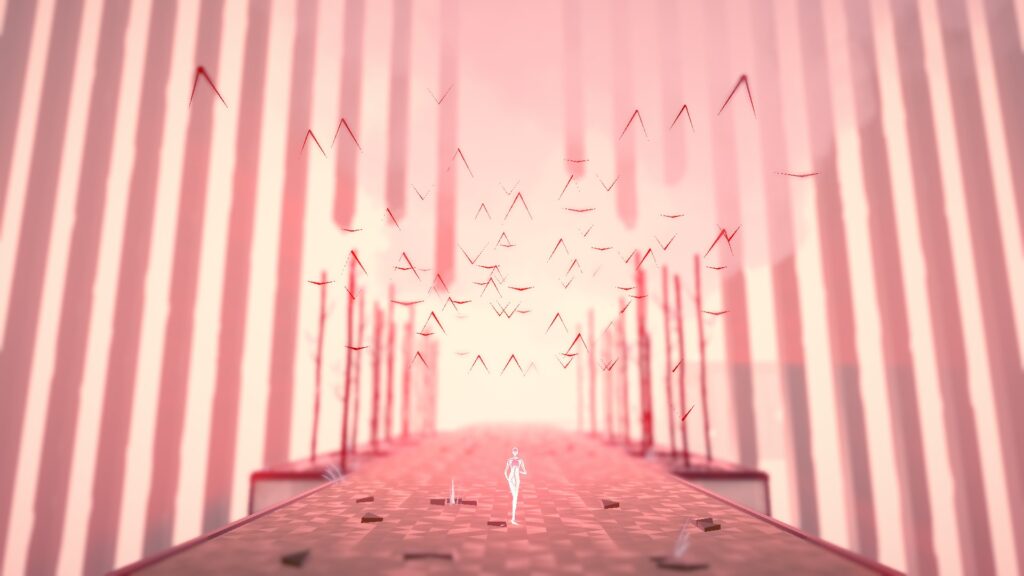
When I first played Etherborn for my preview back in early April, I came away cautiously optimistic. Mind-bending puzzle games aren’t usually my genre of choice, but the game impressed me with its abstract, gravity-defying environments that harken back to an M. C. Escher painting. The equally abstract narrative had me far less excited, but there were enough clever puzzles that the game caught my attention. The final product offers even more creative puzzles, but still ends up being a pretty disappointing experience overall.
Etherborn
Publisher: Altered Matter
Developer: Altered Matter
Platform: Windows PC (Reviewed), PS4, Switch, Xbox One
Release Date: July 18th
Players: 1
Price: $16.99
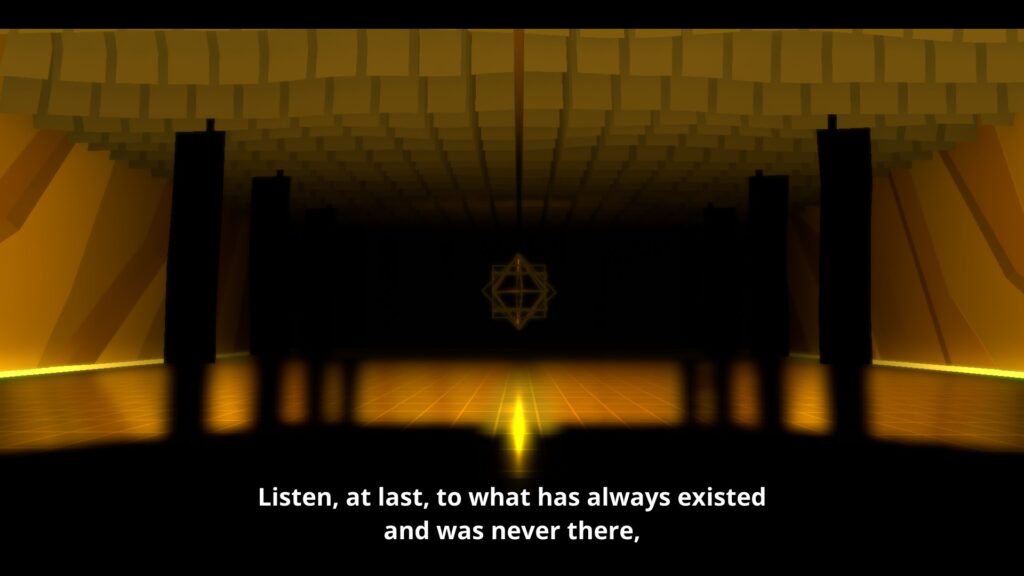
In Etherborn, you play as a transparent, humanoid being with an exposed circulatory system being urged to climb a massive, twisting tree by a disembodied voice.
I honestly can’t tell you what the story is actually about, because its delivered in such an obfuscated and pretentious manner that you’d probably have to show it to a philosophy professor to make heads or tails of it.
I think it might be eluding to the dawn of human civilization, and the levels themselves feel vaguely inspired by human anatomy, but its delivered in such a nonsensical way that it could mean whatever you want it to mean. It’s whatever you want it to be, man.
It comes off as trying to be a bit too clever than it actually is, and ultimately, the narrative is so far removed from what you are actually doing in the game that it has no real meaningful impact on the experience.
Then again, I’m just a big dumb plebian that likes to play games about impossibly large super soldiers in power armor that shoot very loud guns at communist space fish people that worship Japanese anime.
I’m sure some game critics will be more than happy to tell you about the deep and intricate meaning behind Etherborn‘s narrative, but I am most certainly not one of those critics.
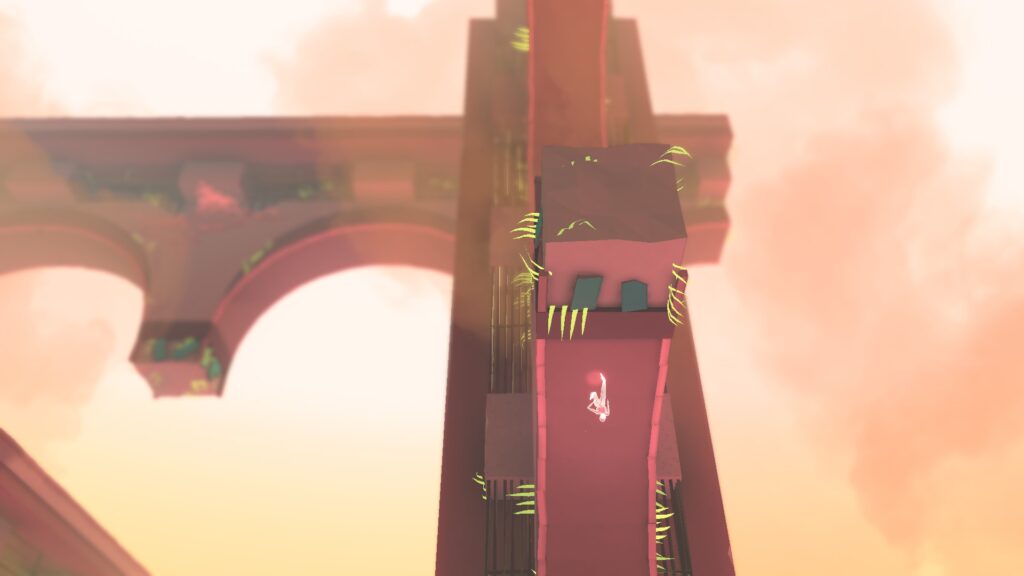
Luckily, the narrative mostly takes a back seat to the impossible, maze-like levels that defy every known law of physics and nature. As you ascend the tree’s twisting trunk and branches, you’ll come across portals to levels that must be completed to open up a new path on the tree.
The goal of each level is simply to navigate to the end, primarily by finding orbs that you slot into switches that alter the level in some way so you can advance.
Each level will generally have three or four segments like this before you finally reach a portal that brings you back to the tree, rewarding you with brief bits of narrative from the disembodied voice.
The levels will have you walking on ceilings, walls, and everything in between. Most of the game’s navigation deals with figuring out how to shift perspectives, usually via finding a curved surface, stairs, or simply jumping from the right location.
Each time you shift perspective, the laws of gravity change, and most of the game’s puzzles and mechanics are based around you figuring out how to orient yourself and what surfaces can now be climbed or accessed from your current position.
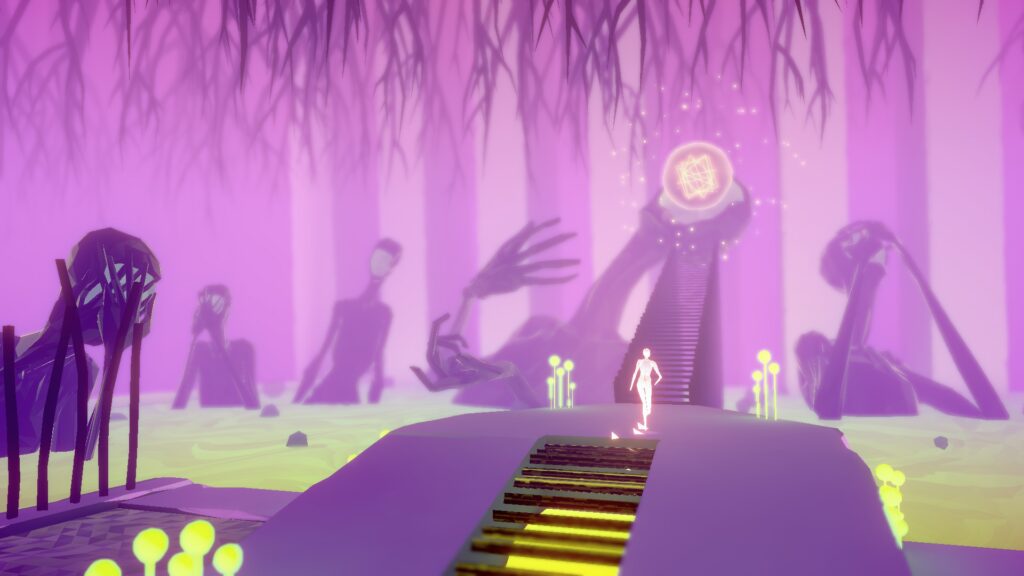
At its core, Etherborn is a gigantic environmental puzzle, and all it really takes to figure out each solution is a keen eye and the ability to wrap your mind around how the ever-changing perspective shifts affect gravity and the world around you.
I must admit that it took me a while before I managed to really grasp the game’s mechanics. I became quite frustrated at times, and was constantly reminded of why I usually hate puzzle games.
The core mechanics are simple, but the game requires you to observe the environment in disorientating ways that my tiny brain just wasn’t wired for. But, there’s no denying that the game’s puzzles are clever, and if the idea of abstract environmental puzzles inspired by an M. C. Escher painting excites you, then you’ll probably love the levels Etherborn throws at you.
Unfortunately, Etherborn has one giant flaw that will probably turn a lot of people off, no matter how much they like puzzle games, and that flaw is game length. Even with my dumb and poorly educated southerner mind, Etherborn only took about two hours to beat.
That’s even after getting stuck for embarrassingly long stretches of time. If you are really good at processing the way the game’s perspective shifts and environments work, then Etherborn will probably take you less than an hour.
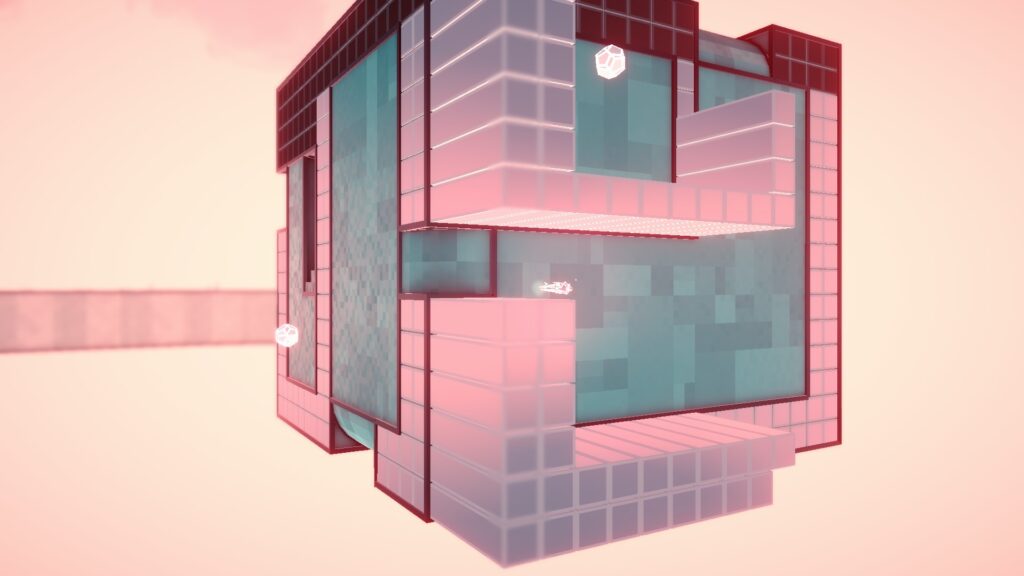
There is a New Game Plus, but all it does is change up the locations of the orbs, usually by hiding them in bushes or at odd angles. Even someone as awful at puzzle games as myself breezed through both game modes in around three hours, and after that there’s really no reason to ever touch the game again.
It’s a shame, because just as the game was starting to click with me, I was abruptly met with some incomprehensible narration and the credits began to roll.
Not counting the tutorial, Etherborn has four levels, or eight if you include New Game Plus. In fact, the game is so short that I now realize that I played about 50% of the game when I did my original preview.
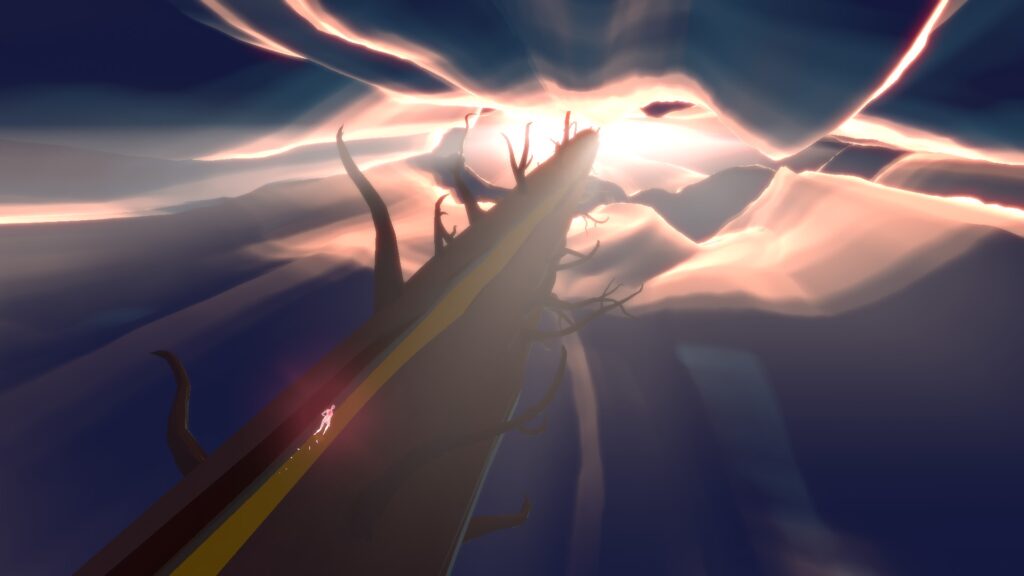
Etherborn is a game I’m not entirely sure I can recommend, because by the time it was really starting to get going, it was already over. The abstract and bizarre levels are pretty, and you could probably get some nice screensavers out of the game’s environments.
The music is soothing and helps calm the frustrations of trying to figure out how to jump from a wall onto a ceiling to grab a stupid glowing orb floating in the air. The puzzles and the way the game uses perspective and gravity are really clever.
Unfortunately, the game’s narrative comes off as overly pretentious and nonsensical, and I feel like it doesn’t even really complement the gameplay or puzzles. There’s still fun to be had in solving Etherborn‘s puzzles, but given how insanely short the game is, I’d probably recommend giving it a pass until you can find it on sale.
Etherborn was reviewed on Windows PC using a review copy provided by Altered Matter. You can find additional information about Niche Gamer’s review/ethics policy here.